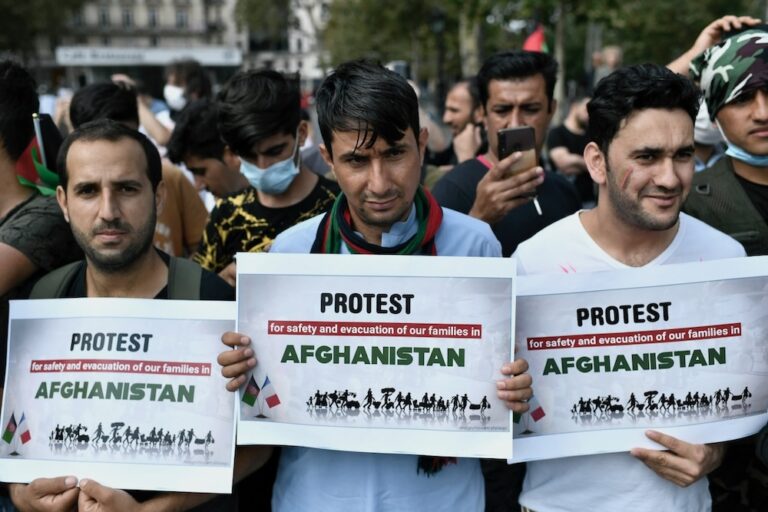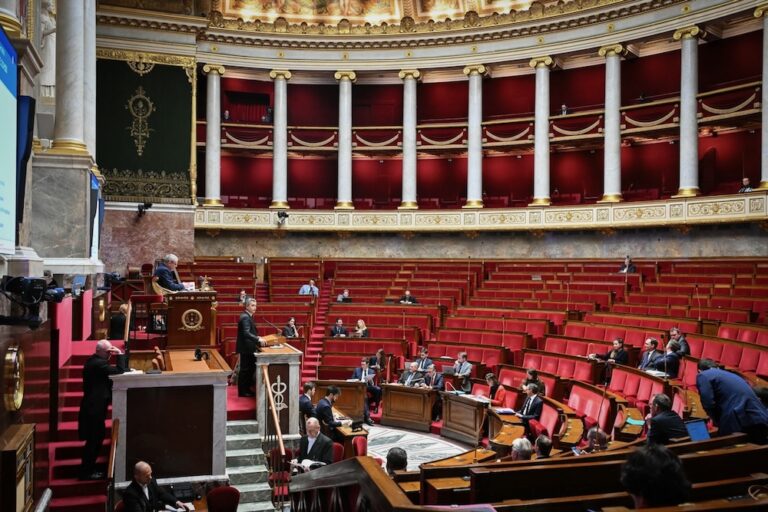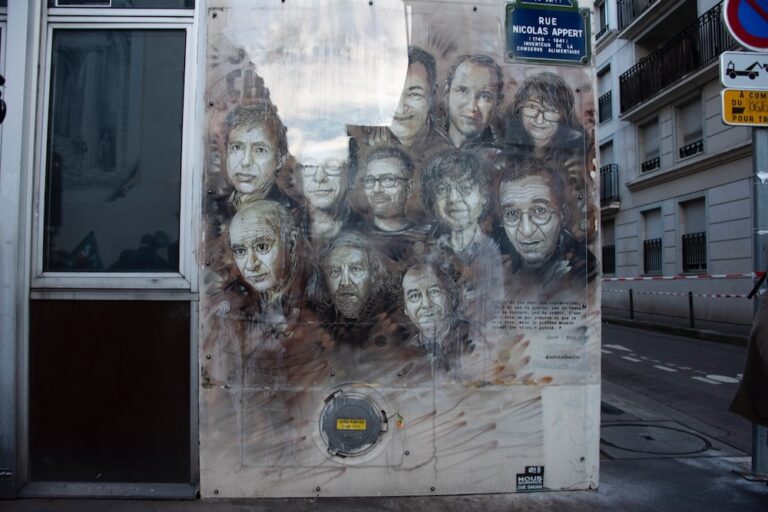(RSF/IFEX) – On the third anniversary of the abduction and disappearance of French-Canadian journalist Guy-André Kieffer in Abidjan, a news conference about the case was held on 13 April 2007 at the French national assembly by Reporters Without Borders, Kieffer’s wife, Osange Silou-Kieffer, his brother, Bernard Kieffer, the president of “Truth for Guy-André Kieffer” support […]
(RSF/IFEX) – On the third anniversary of the abduction and disappearance of French-Canadian journalist Guy-André Kieffer in Abidjan, a news conference about the case was held on 13 April 2007 at the French national assembly by Reporters Without Borders, Kieffer’s wife, Osange Silou-Kieffer, his brother, Bernard Kieffer, the president of “Truth for Guy-André Kieffer” support committee, Aline Richard, and the Green Party deputy for Gironde, Noël Mamère.
Promising on behalf of Green Party leader Dominique Voynet to “keep pressing for the truth to emerge” and reiterating his party’s support for Kieffer’s family and friends, Mamère said he feared that the peace accord recently reached in Ouagadougou between Ivorian President Laurent Gbagbo and the new prime minister, Guillaume Soro, would “write off” the need for truth and justice in this case.
Richard read out the replies to a letter about the case that had been received from French presidential candidates Marie-Georges Buffet (PCF) and Arlette Laguiller (LO). The texts of their letters are available at this website: http://www.guyandrekieffer.org
Reporters Without Borders announced that, together with the family and support committees, it had launched a poster campaign to remind the French public about the mystery surrounding Kieffer’s disappearance in the run-up to the presidential election. Posters with Kieffer’s photo and the question: “Where is Guy-André Kieffer?” have been put up in various parts of the Paris, including outside the Côte d’Ivoire embassy ( photos available from http://www.rsf.org ).
“We are demanding that those responsible for our colleague’s disappearance should be identified and punished, not just to render justice to his family and friends, but to render justice to the Ivorians themselves, who have a right to know how and why a journalist can be kidnapped in broad daylight in Abidjan and whether any of their president’s close aides were involved,” Reporters Without Borders said.
Kieffer’s wife, Silou-Kieffer, said she met on 13 April with Brigitte Girardin, the deputy minister for cooperation, development and Francophone countries, who has often raised the case on visits to Abidjan. Girardin promised to make the case “a priority” when she handed over her portfolio to her successor and said it would be “an important part of her legacy,” Silou-Kieffer said.
Kieffer’s brother deplored the Ivorian authorities’ continuing obstruction of the investigation being conducted by French judges Patrick Ramaël and Emmanuelle Ducos, including the Ivorian high command’s failure to respond to a request to question five solders on active service who have been identified as probable members of the “operational commando unit” that kidnapped Kieffer.
The soldiers are Dorgeles Toh Zoua, also known as Arthur (born in Duékoué in January 1980), Tiburce Vionhou, aka Jose (born in Bangolo on 13 February 1979), Bognan Donatien Glouh, aka Doubi (born in Dabou on 8 June 1983), Jean Roland Zaomon, aka Requin (born in Duékoué on 20 October 1977) and Doni Yoro, aka Fisher (born in Abidjan on 1 January 1976).
“If the Ivorian army has nothing to hide, it should produce evidence that these five individuals are still alive and it should allow the judges to question them,” Kieffer’s brother added.


